The book covers the important aspects of water, air and noise pollution. Using a multidisciplinary approach, it highlights the impact of environmental pollution in the world. It also suggests methods for controlling and scientific monitoring of pollution-causing agents. Also included are chapters on efficient guidelines and standards, radioactive waste, solid waste disposal and sewage treatment, oil pollution and role of insecticides. Pollution in tanneries, fertilizer industry, and pulp and paper industries is also covered. The last few chapters are devoted to environmental management, benefit-cost analysis and mathematical modelling for environmental pollution control.
Environmental Engineering Paperback – 14 July 2017
KShs 7,500.00
The book covers the important aspects of water, air and noise pollution. Using a multidisciplinary approach, it highlights the impact of environmental pollution in the world. It also suggests methods for controlling and scientific monitoring of pollution-causing agents. Also included are chapters on efficient guidelines and standards, radioactive waste, solid waste disposal and sewage treatment, oil pollution and role of insecticides. Pollution in tanneries, fertilizer industry, and pulp and paper industries is also covered. The last few chapters are devoted to environmental management, benefit-cost analysis and mathematical modelling for environmental pollution control.
3 in stock
| SKU: | 9780074633281 |
|---|---|
| Categories: | Agriculture, Engineering |
| Author | G N Pandey |
|---|
Related products
-
ENVIRONMENTAL ENGEENIRING
KShs 4,200.00The standard for Environmental Engineering FE Review includes;
- 110 practice problems, with full solutions
- Set up to provide in depth analysis of likely FE exam problems
- This guide will get anyone ready for the FE Exam
Topics covered
- Air Quality Engineering
- Environmental Science & Management
- Solid & Hazardous Waste Engineering
- Water & Wastewater Engineering
- Hydrologic and Hydrogeological Engineering
-
Agricultural Science and Food Security
KShs 23,800.00Agricultural Science and Food Security discusses the challenges and hurdles in global food security. The scope of the book includes, but not limited to agricultural science, sustainable agricultural food production, food production and efficiency in utilization of agricultural resources. The main reason is the poor management of pests, weeds ad diseases in crops that is obstructing the way of food security globally ad to address the same, management of same has been discussed in details to maximize production of food crops.
-
Elements of Enviromental Engineering-Dr K.N. Duggal
KShs 2,586.00The key features include: the important principles and practices of Sanitary Engineering, as they are understood and generally applicable in our country today, have been fully delineated so that it may be easy for the students preparing for various examinations; the treatment of the subject has been kept exhaustive, sufficiently simple without sacrificing the fundamentals involved; and, effort has been made to keep the information as much up-to-date and compact as possible, and with that view, some references have been made to the relevant Indian Standard Specifications, so that to the engineers in the profession, it may also prove to be of use. The book is broadly split up into four parts. Part I deals exclusively with the subject of “Water Supply”, Part II describes “Sewerage and Sewage Treatment”, Part III “Water Supply and Drainage of Buildings” and Part IV “Environmental Sanitation”, which includes only some of the more important topics of the day viz., Refuse Sanitation, Ventilation and Air-conditioning, Air Pollution, and Malaria, incidental to Engineering. A number of selective questions of the various Indian Universities and other examinations have been given towards the end of each chapter to serve as an exercise to the problems duly solved in the chapter. The last 2-3 decades have seen tremendous research and development in the fields of water treatment and sewage/wastewater treatment. New concepts like unit operations in water treatment and unit operation and processes, in particular biological processes, in sewage/wastewater treatment have been introduced. Besides topics like defluoridation, demineralization and wastewater reclamation have evoked considerable interest and attention. To reflect these changes, this book has been revised to make it updated, with the latest information on these topics. The readers will find the book more appropriate and useful to their needs.
-
Agricultural and Agribusiness Law An Introduction for Non-Lawyers
KShs 8,330.00This introductory textbook provides an overview of the concepts necessary for an understanding of agricultural and agribusiness law. The text will help students of land-based industries with little or no legal background to appreciate and identify issues that may require referral or consultation with legal counsel. This new edition is fully revised and updated, particularly addressing developments in taxation and trade, and includes a new chapter on criminal law, an area of increasing relevance to agriculture.
Each concise chapter addresses a different legal issue that those employed in agriculture and agribusiness may face, and both federal law and representative examples of state law are included. In addition to traditional topics such as contracts, property law, and estate planning, the book also covers more contemporary issues such as organic certification, animal law, genetically engineered crops, and food safety.
Agricultural law extends beyond those directly engaged in farming to those in agribusiness who provide services and inputs to farmers, buy farmers’ products, store or transport products, manufacture food products and serve as intermediaries between farmers and consumers. The book will, therefore, also serve as a reference and a guide for those employed in agribusiness and agriculture.
-
Writing for Engineers (Bloomsbury Study Skills, 31)
KShs 4,620.00This book is full of practical advice and useful examples to help students and engineers write clearly, accurately and impressively. This updated fourth edition features new material on technical notes, inspection reports and business cases, along with abstracts and summaries. It is an essential aid for today’s engineers.
-
The Science of Agriculture: A Biological Approa
KShs 27,580.00THE SCIENCE OF AGRICULTURE: A BIOLOGICAL APPROACH, Fifth Edition, masterfully introduces the biological sciences and explores the influences of these sciences on modern agricultural practices and the agricultural industry. Reader-friendly and superbly illustrated, this highly practical text explains not only the �how� of agriculture, but also the �why� behind agriscience, presenting information on plant and animal systems, soils, cell functions, genetics, genetic engineering, plant and animal reproduction, entomology, biotechnology, and environmental concerns. Additionally, the text spotlights career opportunities and discusses new directions in agriculture, including topics such as no-till crops, high-pressure processing in food preservation, fracking, and more, to further engage you with today�s agricultural world.
-
Agricultural Law and Economics in Sub-Saharan Africa: Cases and Comments
KShs 17,400.00Agricultural Law in Sub-Saharan Africa: Cases and Comments introduces the subject of agricultural law and economics to researchers, practitioners, and students in common law countries in Sub-Saharan Africa, and presents information from the legal system in Botswana, Gambia, Ghana, Lesotho, Malawi, Nigeria, Sierra Leone, South Africa, Swaziland, Tanzania, Zambia, and Zimbabwe. The law and economics approach entails the use of quantitative methods in research. This is consistent with the expectations in an applied economics field such as agricultural economics.
Covering the general traditional law topics in contracts, torts, and property, the book goes further to introduce cutting-edge and region-relevant topics, including contracts with illiterate parties, contract farming, climate change, and transboundary water issues. The book is supported by an extensive list of reference materials, as well as study and enrichment exercises, to deepen readers’ understanding of the principles discussed in the book. It is a learning tool, first and foremost, and can be used as a stand-alone resource to teach the subject matter of agricultural law and economics to professionals new to the subject area as well as to students in law school, agricultural economics, economics, and inter-disciplinary classes.
- Offers research findings on such topics as food safety, climate change, transboundary natural resources, international sale of goods, patents, and trademarks to highlight the future sources of pressure on the agriculture industry
- Uses case-studies to provide real-world insights into the challenges and considerations of appropriate agricultural law development
- Challenges readers to carry out their own research in their areas of study, and to gain some understanding of the relationship between law, economics, and statistics
- Includes extensive resources, such as chapter summaries, study questions, and challenge questions at the end of each chapter to assist instructors and students in gaining full benefits from using the book
- Provides separate instructor and student study guides, a test bank, and test bank answers, in hardcopy and electronic formats
-
Agricultural Sustainability by Elisa Gomez Gonzalez (Author)
KShs 21,000.00Agricultural Sustainability starts with an overview of agricultural sustainability and the factors influencing the agricultural sustainability. As agricultural sustainability is all about understanding ecosystem services and can be seen as a study of relation between organisms and their respective environment, this text has been written to cover all these aspects. Further, sustainability in poultry and aquaculture has been described to broaden the research and potential of agricultural sustainability in arid and semi-arid areas has also been discussed



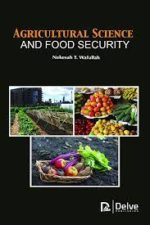

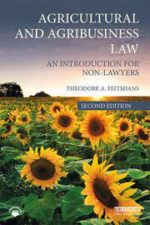
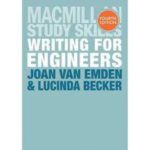
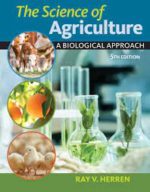
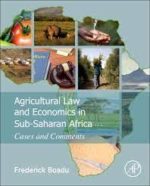

Be the first to review “Environmental Engineering Paperback – 14 July 2017”